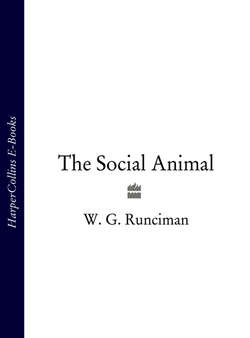Читать книгу The Social Animal - W. Runciman G. - Страница 4
PREFACE
ОглавлениеThe Social Animal is intended as a short and necessarily selective introduction to sociology for readers who either, on the one hand, are unsure quite what sociology is all about or, on the other, think of sociologists as a bunch of self-appointed arbiters of the existing social order who are neither clever enough to be philosophers nor knowledgeable enough to be historians. I have tried not to exaggerate our achievements or gloss over the controversies that divide us. But my principal hope is that I have managed to convey what a fascinating subject sociology is to work in. This is not only because it’s all about us – human beings, that is – ourselves. It’s also because so much more is now known than even a few decades ago about the remarkable differences and no less remarkable similarities in human institutions and behaviour down the ages and across the globe.
This is, moreover, a particularly exciting time in which to be engaged in sociological research on account of the many advances which are currently being made throughout the behavioural sciences, whether in demography, linguistics, and economics, or in genetics, biological anthropology, and developmental and cognitive psychology. The more dogmatic oversimplifications of Marxism, Social Darwinism, Behaviorism, Structuralism, and Durkheimian cultural anthropology are being left behind; ‘postmodernism’ has come and largely gone, taking with it those aspects of the study of human social behaviour which properly belong with literature rather than science; and a new evolutionary paradigm is beginning to emerge within which historical and cross-cultural hypotheses can be formulated and tested in accordance with standards shared among all the various disciplines involved in explaining why human beings are what they are and do what they do. So to any reader of this Preface who may be hesitating whether to take up a career in academic sociology, my advice is: go for it – there’s everything to play for.
My thanks are due to Patricia Williams for her practical advice and to Stuart Proffitt and HarperCollins for accepting the book, as well as to Geoffrey Hawthorn, Toby Mundy, and David Runciman for valuable comments on the initial draft and to Hilary Edwards for preparing the manuscript for publication. I am also grateful to Oxford University Press for permission to quote from Syme’s The Roman Revolution in Chapter VII.
Trinity College, Cambridge September 1997
